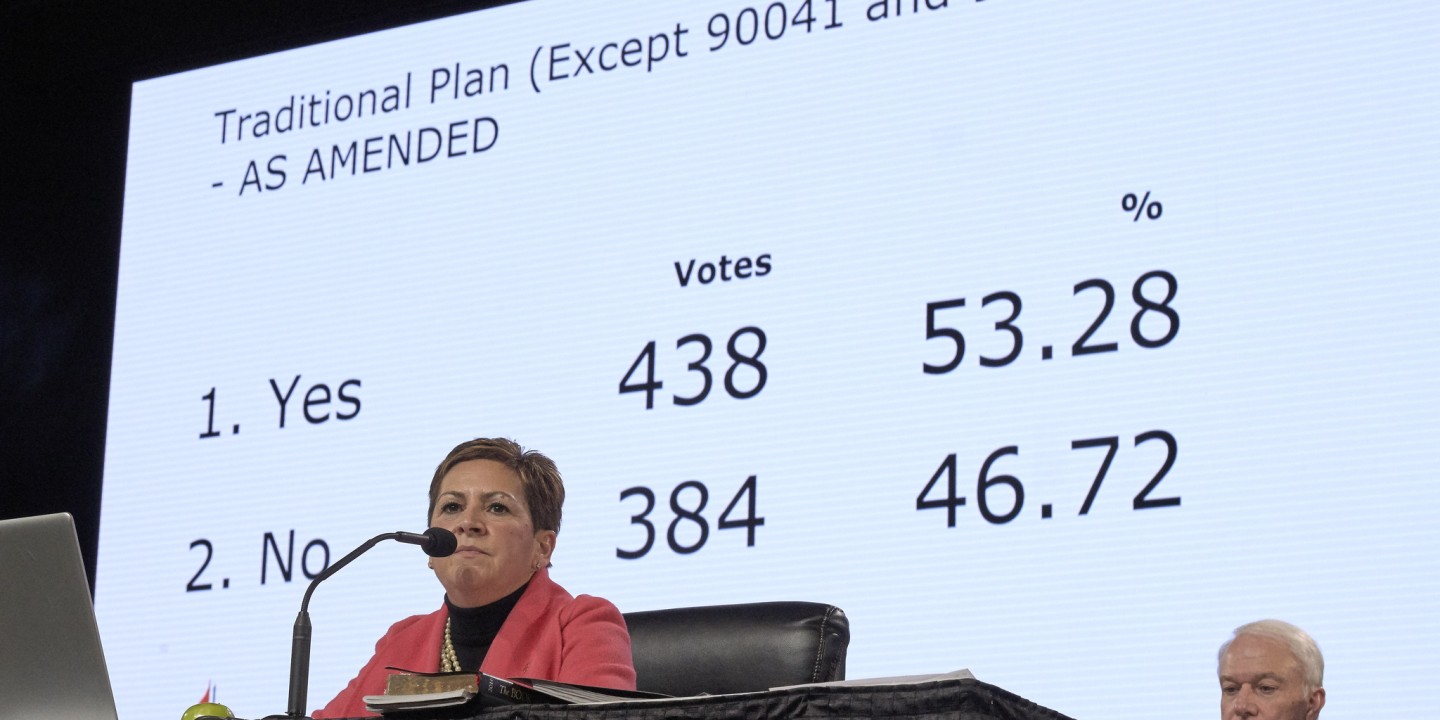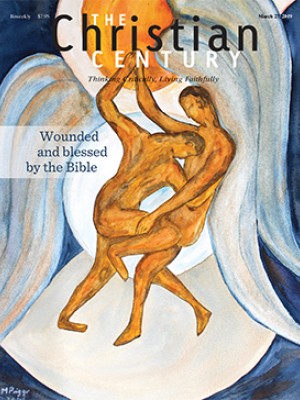Future unclear after UMC votes to keep rules on LGBTQ couples, clergy
The United Methodist Church retained current language in its Book of Discipline—but it might not be enforced, and churches are considering leaving from both sides.

A special session of the United Methodist Church’s legislative assembly voted February 26 to keep the global denomination’s current rules against same-sex marriage and noncelibate gay clergy and to strengthen enforcement of them.
The St. Louis meeting was meant to unify the church but instead underscored divisions and had all sides acknowledging a high level of pain. Yet after $3.7 million to put the meeting together and a wrenching three days of deliberations, the UMC gained only marginally more clarity on its future than when the meeting began.
The crucial vote was 438 delegates in favor of the Traditional Plan and 384 opposed.
Regional bodies forming the 12.6-million-member UMC elect delegates—half clergy and half laity—to represent them at the legislative assembly, with the number of delegates varying according to the region’s population. About 58 percent of delegates were from the 7 million members in the United States, where the UMC is the second-largest Protestant denomination. Voting was by secret ballot; no breakdown is available on how delegates from each country voted.
Read our latest issue or browse back issues.
The Traditional Plan retains language in the denomination’s Book of Discipline stating that “the practice of homosexuality is incompatible with Christian teaching” and that “self-avowed practicing homosexuals” cannot be ordained as ministers, appointed to serve, or be married in the church.
The One Church Plan, which would have allowed congregations and regional bodies to decide whether to recognize the marriages and ordinations of LGBTQ people, had previously been rejected by delegates. The plan had been recommended by the UMC’s Council of Bishops ahead of the legislative assembly, in which bishops did not vote.
Rey Hernandez, a delegate from the Philippines, supported the unity in the One Church Plan, which recognizes that cultures and mission contexts are not the same around the world.
“With the help of the gifts of Holy Spirit, I believe what we are trying to agree on is to spread the gospel,” Hernandez said.
Rudolph Merab, the lead lay delegate from Liberia, said the One Church Plan wouldn’t provide salvation.
“It is better to be divided by truth than to be united in error,” Merab said.
The effects of the legislation that passed are unclear given constitutional questions that will be addressed by the Judicial Council, the denomination’s supreme court, which meets April 23–25 in Evanston, Illinois. Parts of the plan already have been declared unconstitutional; not all of them were able to be amended by delegates before they approved the plan.
Jeff Greenway—chair of the conservative Wesleyan Covenant Association, which advocated for the Traditional Plan—said he worries the plan as approved by the General Conference has “no teeth” and “little likelihood of accountability.”
Still, Keith Boyette, president of the WCA, said after the vote that he sees a split from the denomination as “unlikely.”
At the legislative assembly, delegates approved petitions from Wespath Benefits and Investments, the denomination’s pension agency, that address some of the financial questions for congregations that choose to leave. Any local church that withdraws or is closed must pay, at a minimum, its fair share of unfunded pension liability for their regional body. And any clergy members who end their relationship with a regional body will be treated as “terminated vested” participants, meaning their accrued benefits would be safe and converted to an individual account balance.
The vote provides no permanent resolution, suggested Karen Oliveto, a married lesbian who is the first among openly LGBTQ United Methodists to be consecrated bishop. She wrote on social media that in the UMC “children will receive the waters of baptism & know God claims them. Some will hear a call to ministry. Some will be queer. And then it starts all over again.”
Gregory Gross, a delegate from Illinois and organizer with the Queer Clergy Caucus, said LGBTQ United Methodists may now have to envision “a new expression of Methodism.”
Adam Hamilton, a clergy delegate from Kansas who is pastor of the UMC’s largest congregation, Church of Resurrection, with 20,000 members, spoke against the Traditional Plan. He wrote on social media about convening a meeting after Easter with bishops, other key leaders, and anyone interested “to discuss where Methodism goes from here.”
“I’m not ready to give up on the church at this point,” he said at the assembly. “But I do think that enforcement with teeth is going to have a lot of people thinking about leaving.”
A version of this article appears in the print edition under the title “UMC votes to keep rules on LGBTQ couples, clergy.” The online version was edited March 8.






